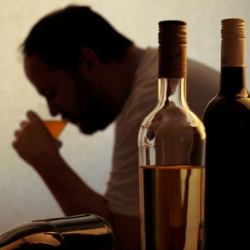Youth Pastor, You are dealing with current and future addicts.
I was a youth pastor for the first and most exciting part of my paid professional pastoral career. I loved almost every moment of it. Working with teenagers and their families was probably one of the most gratifying parts of my early adult life and I took great pride in growing a youth ministry in a church that wanted numerical growth constantly. Looking back, allowing a person that has just left their teenage years to be in charge of a bunch of teenage children is probably a poor idea for a church, but the churches that I worked for offered amazing grace as I fumbled my way through difficult situations.
A Tale of Shattered Confidence
One of the issues that I never paid close attention to when I was a youth pastor was addiction. It was not on my radar for various reasons. The church that I was a part of did not cultivate a clear culture of vulnerability so there was not openness from those that struggled with addiction in any way. The kids that attended my youth group were from suburban ‘perfect’ households and didn’t really offer honesty about what was happening in their home. Then one day, a Dad came to see me. He wanted to talk with me and my boss, the Lead Pastor. He sat me down and he told me that I had caused his son to become an alcoholic and that his son was now in a treatment facility because of how the addiction had taken over his life. I was heartbroken. I went into ministry to help people that were in pain. I didn’t get into ministry to cause pain to others. I apologized to the Dad profusely, and left the meeting shaken with confidence completely shattered. It was my first interaction with addiction in teenagers.
Some Statistics
If you are a Youth Pastor, you are dealing with current and future addicts. The statistics don’t lie when it comes to addiction.
Per the National Center for Drug Abuse Statistics – Nationally,
- Drug use went up among 8th graders between 2016 and 2020 by 61%
- 62% Of teenagers in 12th grade have abused alcohol.
- 50% Of teenagers have misused a drug at least once.
This means that nearly every other teen that attends your youth ministry has or is struggling in some way with drugs or alcohol. Maybe it isn’t as pervasive in the church as it is ‘out in the world.’ Barna has been pretty clear in recent studies that there is little to no difference in behaviors between those that attend a church and those that don’t. You have kids in your ministry that are currently struggling with addiction.
One thing that I know to be certain is that many of the teenagers that are currently struggling with addiction, will struggle with addiction for a long time to come. And those that aren’t struggling with it now, may struggle with it later. Alcohol Abuse Statistics report that 1 in every 4 adults has binged drank in the past 30 days and that 7% of those polled report alcohol use disorder. This isn’t going away and our next generation is growing up into a world where addiction is prevalent and easy to fall prey to.
What do I do with all of the addicts in my Youth Ministry?
This is a question that I’m sure you will have a better answer for as you consider your specific context. There are varying issues to consider when determining a plan to address widespread addiction or even widespread use. Here are some thoughts as you seek a plan to address the issues discussed in this article.
Don’t judge those that are using or abusing alcohol or drugs.
Believe me, I worked at a church where it was very easy to write off a kid for bad behavior or for doing something so heinous that as a church staff, we weren’t sure they should be invited back to the youth ministry. But if I have learned one thing from being an addict myself, it’s that addicts don’t respond to judgment. In fact, they may recoil with judgment straight back into the addiction that has them captive. If your first instinct is to judge those that are struggling, you may want to look again at how Jesus dealt with societal outcasts and develop a personal gameplan from there. Love, affirmation, and open dialogue are really important in a discussion with an addict. Without these, the addict will run from the relationship and find security in their vices.
Don’t Assume that the “Good Kids” are not struggling.
They are. In fact, they may be the ones that are struggling the most. Often, addicts are created in a bubble of perfection seeking and affirmation coveting. The ‘good kids’ that you have in your youth ministry may be putting on a very good show to receive the strokes that they need to continue on but on the inside are dying from loneliness, loss, or depression. It’s in these moments that addiction can begin to wrap tentacles around a person. A teenager may find escape through drugs or alcohol.
Whatever you do, involve the parents in pivotal and crucial discussions.
I can remember how difficult it was to synthesize the issues that I was trying to deal with directly with teenagers with their parents. Often, parents get upset, possibly with you for pointing out something that needs addressed in a child’s life. But as a parent myself today, I know that I want the input into my own life and parenthood from those that are seeing things in my kids that I may be blind to. Involve the parents in the discussions that you want to have on both a corporate level (speaking about addiction to a youth audience) and a personal level (speaking directly with a teen about their consumption). Parents need to be aware, and in the long run, it will be much healthier for all involved the more awareness is on all sides of the equation.












